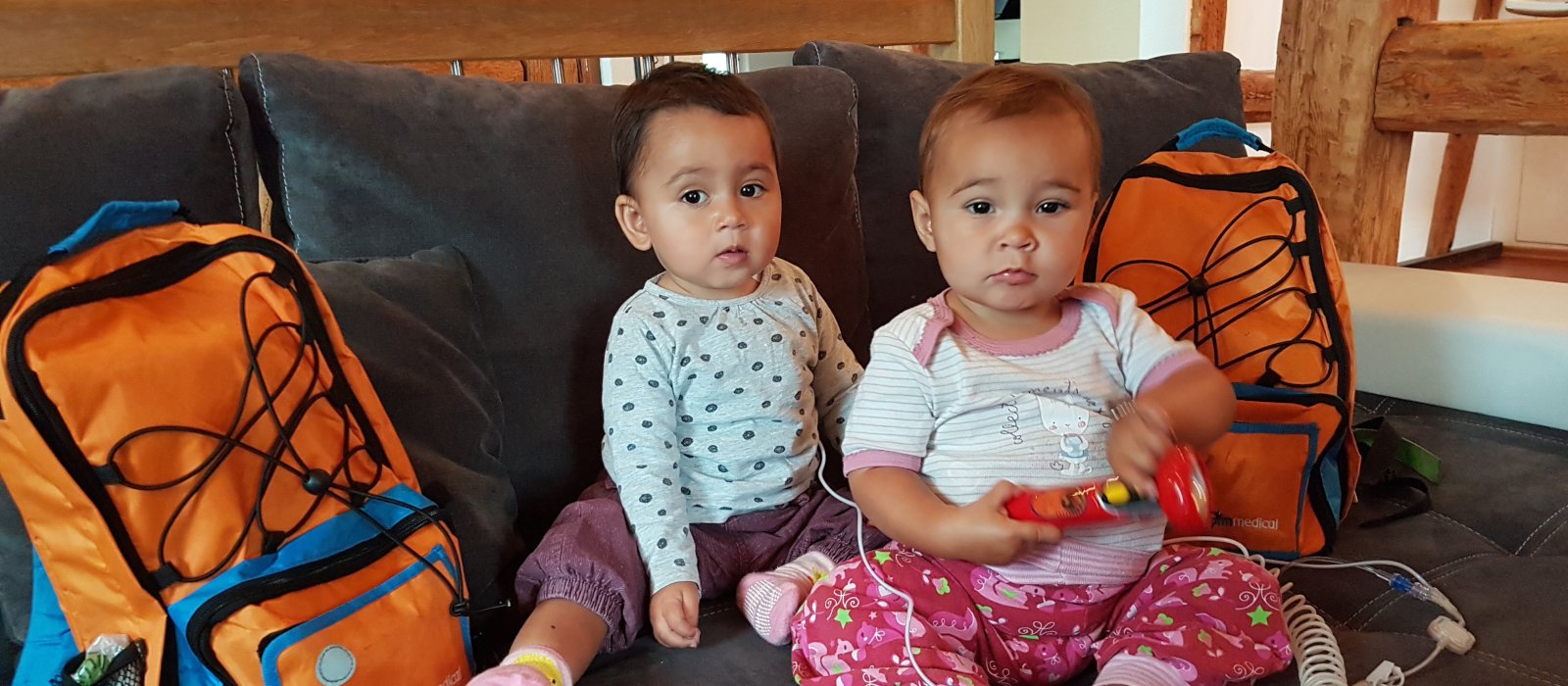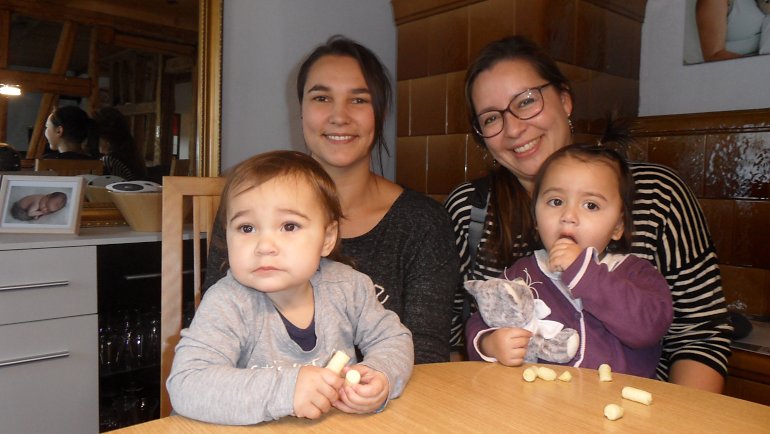

They are two little charming heroines: When Emma and Ana romp gleefully around the living room, look at their toys with curiosity, or crawl at lightning speed on their knees across the room and make it acoustically known when something is not okay, you would think you were in a totally normal nursery somewhere in Switzerland. If you take a closer look, however, you will see that the two happy children are connected to two colorful bags via white spiral cables that peek out from underneath their clothes. These are the infusion lines leading to the infusion pumps and bags that supply the nutrient solutions for the parenteral nutrition that the two children have needed ever since they were born.
(Published: February 2019)
Parenteral nutrition becomes necessary when a person’s stomach or intestines cannot perform their designated tasks flawlessly, for example due to an operation or a disease. The special liquidized nutrition and the fitting device for administering it are designed to bypass the usual process of digestion and supply the patient with all necessary nutrients such as amino acids, lipids, minerals, and vitamins.
How long these administering processes take depends on the individual case of the patient – Ana needs infusions 18 hours a day and Emma 21 hours a day. Therefore, the parenteral nutrition has to be administered overnight while they are asleep and for several hours during the day. Portable infusion pumps and a backpack system ensure as much freedom of movement as possible for the children. Remarkably, the two see their particular circumstances and all the resulting implications as something totally normal. Their mothers preparing the infusions in the evening before they go to bed, connecting the infusions to the backpacks, the occasional beep the infusion pumps make when an infusion tube gets blocked, or the cleaning of the catheter are all part of their daily rituals. Ana is already able to put her backpack on by herself.
Even interaction with siblings and other children is per the customary rules of a child’s world, be it playing roughly or, through Emma’s masterful charm offensive, getting a boy to wear her backpack, for example. For Ana, going for walks together with her parents and the family dog Aiva is always a special event. Provided the catheter is sufficiently protected, the girls are able to go swimming and splash around, something which creates lots of happy moments, particularly in the summer months out in the garden. Despite their parenteral nutrition, eating and drinking together at the family table allows them to feel part of the family unit and to enjoy their favorite meal.
Ana and Emma’s families got to know each other through the pediatric clinic and have remained on close terms with each other ever since. In addition to the social side of things, the practical tips and mutual exchange of experience are invaluable as far as daily caregiving tasks are concerned. Being accurate throughout the overall treatment and maintaining high levels of hygiene are basic prerequisites for successful and safe parenteral nutrition at home. Both families perform these challenging tasks unfailingly. A specialized outpatient care organization (Kinderspitex) is on hand to provide assistance when needed. At the pediatric clinic, the children are examined and have various lab tests done every month.
The employees in the FresuCare department of Fresenius Kabi in Switzerland are in charge of planning and organizing the supply of nutrient solutions and all of the devices needed for providing pediatric patients with parenteral nutrition at home. Our FresuCare colleagues identify the individual needs of the patients at their home and act as a go-between between families, the pediatric clinic, and the logistics department of Fresenius Kabi. In-house staffs process the families’ online orders, arrange deliveries, and lay the administrative foundations for the direct settlement of costs with the insurers. The FresuCare organization of Fresenius Kabi Switzerland has been able to expertly provide patients with comprehensive clinical nutrition at home for over 25 years, thereby creating significant value for chronically and critically ill patients.
Ana and Emma’s parents especially value the fact that, by being well prepared, the whole family can even go on long journeys and, as a result, are also able to go and see relatives who live far away or visit holiday destinations.
Contact
Fresenius Kabi AG
Else-Kröner-Str. 1
61352 Bad Homburg
Germany
T: +49 6172 686-0
communication@fresenius-kabi.com

